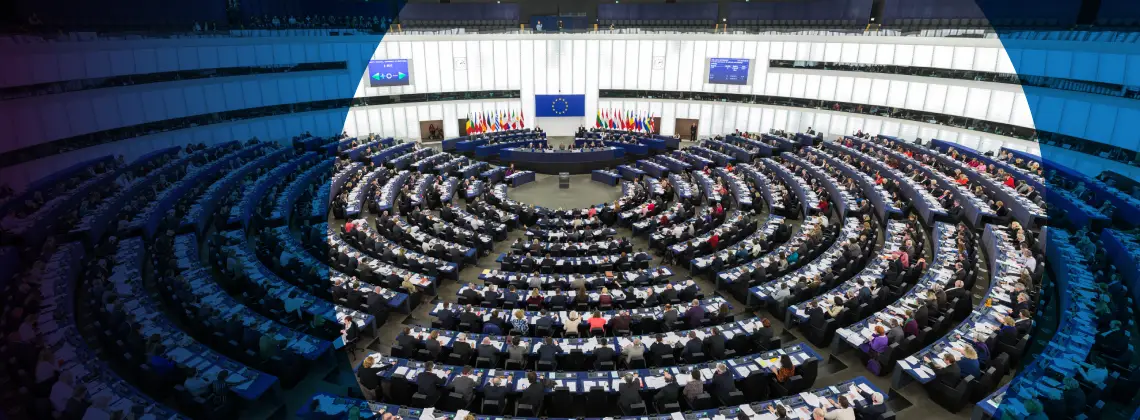News analysis
Anger over ESG reporting “hell” as the bloc signals changes to CSRD

Anger over ESG reporting is growing among Europe’s national governments as the new rulebook continues to spark backlash over red tape.
The bloc has entered a sluggish new phase as it tries to implement its Corporate Sustainability Reporting Directive (CSRD), which requires more companies to be more transparent about their sustainability-related activities.
The new rulebook is firmly part of the EU’s future, but the scale and pace of change are bothering national lawmakers and the businesses they represent.
The rules are meant to champion sustainability and accountability, but critics argue they’re choking economic growth and drowning companies in bureaucracy. The tension between ambitious regulatory goals and practical realities has reached a boiling point, making ESG reporting one of the hottest topics in corporate Europe right now.
France and Germany – Europe’s two biggest economies – are sounding the alarm loud enough to suggest that change might be on the cards. But what will that change look like?
Anger over ESG reporting: what’s the latest?
The EU is facing strong calls by disaffected stakeholders to lighten the burden that CSRD brings to companies, according to an article in Bloomberg.
“Today, the devil is in the detail,” French government spokesperson Sophie Primas told the publication on Wednesday 22nd January.
“In fact, the implementation of this CSRD regulation is hell for companies. I believe that the European Union as a whole has realised that it has gone a little too far.”
Now, sources close to the European Commission suggest that the body may respond to the criticism by producing a slightly watered-down rulebook. The exact changes are unknown at this point.
The move coincides with several headaches for France and Germany. Both their economies are struggling, their businesses are citing new rules and red tape as an obstacle to growth, and the new Trump administration across the Atlantic is forcing a rethink in the global context.
Why is this important?
It’s important because when the economic heavyweights of Europe start calling for less red tape, something’s got to give. Patience is wearing thin.
It’s the biggest argument yet that while Europe’s commitment to better sustainability reporting remains, it has much more work to do to get companies on board. If it doesn’t achieve this, CSRD will only ever be seen as a gigantic tick-box exercise, steaming with bureaucracy and stifling strategic goals.
It’s not supposed to be seen this way. It’s supposed to be a careful balance between essential sustainability goals and the practicalities of running a business.
So, what now for European boards?
For European boards, this situation is a recipe for frustration. On the one hand, scaling back ESG rules might offer some relief. On the other hand, the lingering uncertainty over what the final framework will look like creates a strategic conundrum. Businesses need clarity to plan effectively, and the current limbo only adds to the risk.
So, if you think your company will be subject to CSRD regulations, the best move now is to continue as if that’s still the case, increasing and decreasing priorities only when you have concrete information about changes. Use critical governance skills like strategic foresight, adaptability, and a proactive approach to navigate in the meantime. If you follow that approach, it could be a win-win. You cover all eventualities in the short term while potentially earning some reprieve from reporting requirements in the long term.
Ultimately, CSRD won’t disappear. It’s too big a directive central to the EU’s goal of achieving greater sustainability in the next few decades. It’s the scale and the timing that may be up for further debate.
The important thing is that the culture of transparency continues to grow. For many companies, this does mean some changes at the governance level, particularly around data collection and stakeholder engagement. Eventually, things will be ironed out, and it just might take a little longer than we thought.
In summary
Europe’s ESG reporting rules have sparked a heated debate, exposing the friction between sustainability ambitions and economic realities.
As the EU considers adjustments, the pressure is on businesses to stay nimble and boards to step up. However, for now, European companies are left navigating a regulatory maze with no clear end in sight.
The road ahead will demand resilience and strategy.
Anger over ESG reporting – The Corporate Governance Institute
Insights on leadership
Want more insights like this? Sign up for our newsletter and receive weekly insights into the vibrant worlds of corporate governance and business leadership. Stay relevant. Keep informed.




